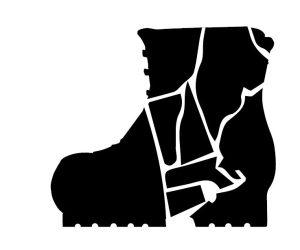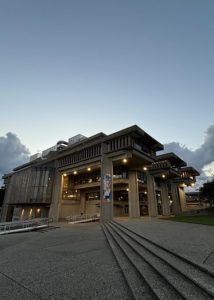Sep
20

Posted by Margot M on September 20th, 2024
Posted in: Funded Project
Tags: Boot Camp, climate change, science librarians
Part of a blog post series from New England Science Boot Camp for Librarians scholarship recipients.

Logo for New England Science Boot Camp for Librarians
Emily Irvine (University of Maryland, College Park):
While all the panels at the New England Science Boot Camp were informative and exciting, the Civil and Environmental Engineering panel was my personal favorite. Dr. Bompoti and Dr. Zhang gave an excellent, and interesting, overview of their field to an audience of non-experts. However, what I appreciated most about this panel was the conversation Dr. Bompoti and Dr. Zhang sparked about bridging the gap between what they do in their labs, and how the public engages, benefits, and uses this knowledge. Dr. Bompoti highlighted this gap with her discussion of brownfield sites. Dr. Bompoti stressed that the knowledge she and her colleagues create is deeply important, but community members are not asking questions about the concentration of a certain chemical down to the parts per million; rather, they want to know if their children are safe, or what they can do to mitigate the risk of living in and around contaminated sites. Both Dr. Bompoti and Dr. Zhang were enthusiastic that librarians could be the key to closing this gap. Librarians are crucial to securing funding, managing data, disseminating resources, and actively strengthening ties between academics and communities–these are the qualities and services experts like Dr. Zhang and Dr. Bompoti need help. As a student still working towards their MLIS degree, I was delighted to see how dynamic librarianship really is in practice and thrilled that a discipline so far from our own is committed to creating a partnership that helps bridge the gap between creating new knowledge and using that knowledge to tangibly help communities.

Photo by Logan Arrowood.
Caroline Williams (Pratt Institute):
The New England Science Boot Camp for Librarians offered a fascinating glimpse into the world of Civil and Environmental Engineering, shedding light on the critical role of infrastructure and sustainability in modern society. As a student specializing in data analytics and visualization with a passion for climate data, the sessions on environmental engineering resonated deeply with my academic and personal interests.
Environmental engineering, as defined by the NSF, applies principles of biology and chemistry to address pressing challenges related to water and wastewater treatment. One of the standout sessions focused on Drinking Water Treatment (DWT), where experts highlighted the primary goal of preventing diseases caused by pathogens and contaminants. The discussion delved into the Safe Drinking Water Act, which establishes maximum contaminant levels (MCLs) to ensure water safety.
The sessions covered the processes involved in treating drinking water, emphasizing issues such as water hardness and the methods like ion-exchange and precipitation used for water softening. The insights into these technical processes highlighted their significance in maintaining water quality and infrastructure longevity.
Another pivotal topic covered was Wastewater Treatment, which addressed the critical need for treating wastewater to mitigate environmental and public health risks. Discussions ranged from the removal of pathogens and organic chemicals to the management of nutrients like phosphates and nitrogen, which can lead to detrimental algal blooms and oxygen depletion in aquatic ecosystems.
As an information professional passionate about climate data, these insights from the New England Science Boot Camp for Librarians have provided a solid foundation for understanding the interdisciplinary nature of environmental engineering. I look forward to applying these learnings in my research and contributing to innovative solutions that balance environmental stewardship with societal needs.